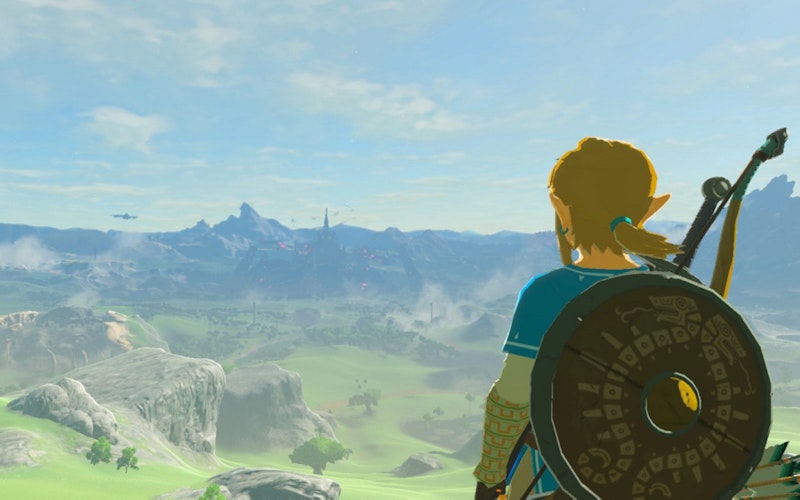
Games
Seeking the Sabbath in Zelda: Breath of the Wild
The Bible begins and ends with play. One of the most fundamental aspects of play is that it is fun, and what do we see God doing in creation but having fun? God exercises freedom, creating out of enjoyment rather than obligation or compulsion. In fact, we know that God enjoyed creating by his own testimony, as he declares everything he made as “very good.” Both Isaiah and Zechariah’s visions of the new heaven and the new earth are ones where childlike play is freely enjoyed in the streets of a renewed Jerusalem, which is also where the book of Revelation ends.
Video games, at their very best, give us opportunities to play freely, to experiment, create, and explore. Every game starts this way, as players begin tapping buttons to see what happens and then move around a digital space to test the limits of what’s possible. The opening moments in games are often the most meaningful because they are the most playful—things tend to deteriorate rather quickly from there.
The majority of what video games ask us to do, even open-world games, is not very playful. They give us massive worlds to explore and then punish us for not following the steps laid out for us. Additionally, like a smartphone with too many apps and notifications, most video games are constantly dinging us with quests, objectives, and tasks to improve our character or advance the central storyline. The games themselves are often filled with notifications—messages informing you of where you are and what you can do—so many notifications that it can be difficult to take note of the digital space you are inhabiting. The Legend of Zelda: Breath of the Wild, however, is one of the few open-world video games that deliberately and consistently celebrates a playful mindset.
Breath of the Wild constantly rewards curiosity.
One of the first things players are asked to do in Breath of the Wild is to climb a tall tower in order to map out their path forward. Early in the game, players will come across sections of the world that are too difficult and dangerous for them to traverse, yet Breath of the Wild lets players discover this on their own. Players are even encouraged to craft meals and potions by throwing ingredients into a pot and seeing what happens. There is also an island in the game that encourages experimentation; when visited, all your items are temporarily taken away by a mysterious power, forcing you to adapt and experiment in new ways in a new arena. Breath of the Wild constantly rewards curiosity.
In other words, playing Breath of the Wild feels less like a grind and more playful, restful, and free. This side of eternity we are not truly free. We are bound by our own selfishness, and by obligations that keep us from playing as freely as we would like. And yet, woven into creation is the gift of play and rest, the opportunity to cease from working and producing and instead to be still and know that he is God.
On the seventh day, God took a break from all his work and consecrated it as a day of rest. On the seventh day, God rested from producing. Too often Christians have criticized play for its lack of productivity, failing to recognize that our playful God commands a regular day of rest to be woven into our routine, a day with no material interest or work for profit. A day less ruled by notifications and more inviting of play. Honoring the Sabbath does not require playing games like Breath of the Wild, but it could help.
Topics: Games, Culture At Large, Arts & Leisure